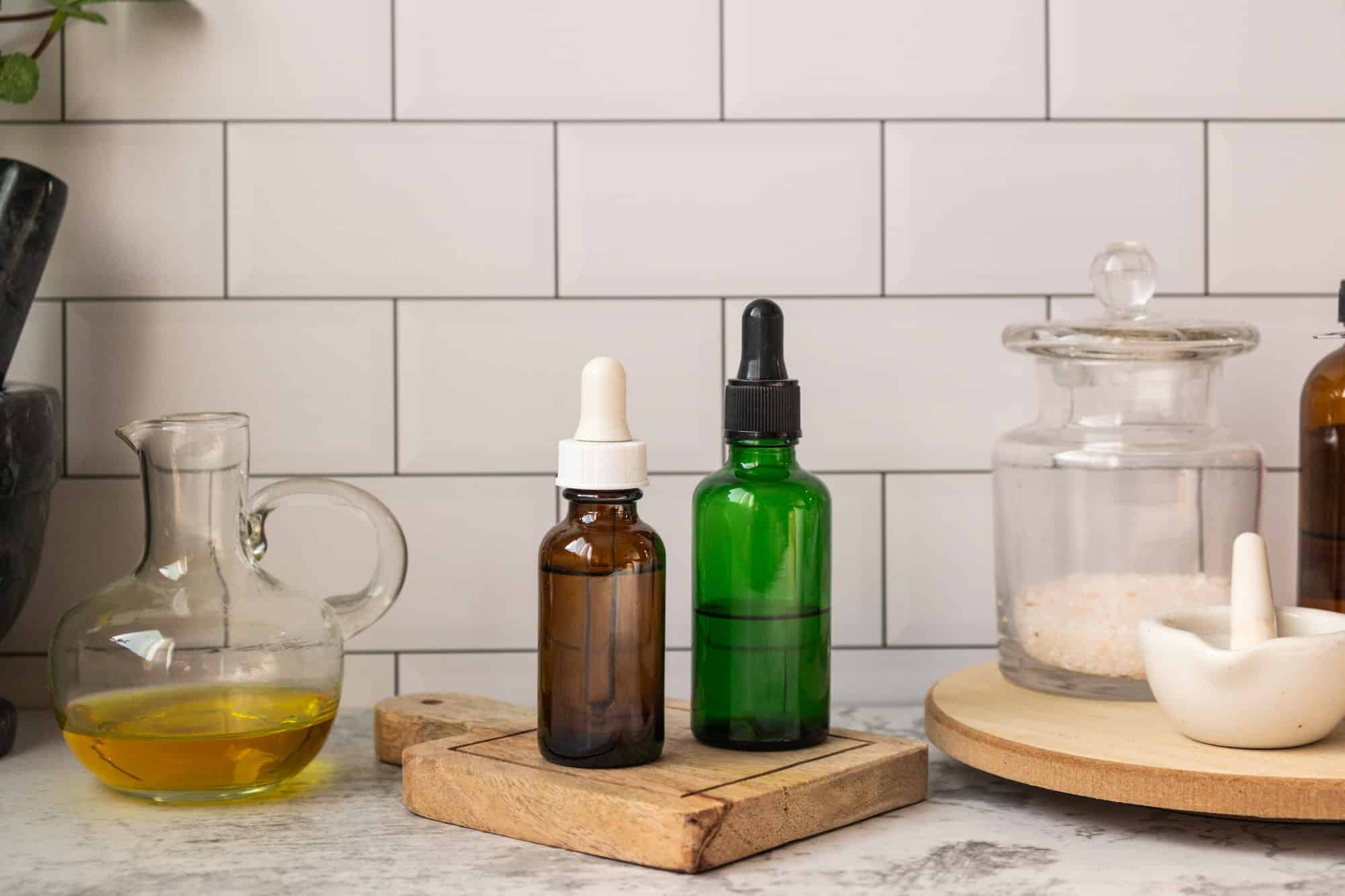What Are the Benefits and Risks of Essential Oils When Used in Aromatherapy for Allergy Relief?

With modern medicine reaching new heights, it’s surprising to many that age-old remedies are still sought after today. One practice that has seen a resurgence in popularity is the use of essential oils, particularly in the field of aromatherapy. The allure of harnessing the healing power of nature is a prospect too appealing to ignore. But, like any health treatment, it’s essential to understand both the potential benefits and risks.
In this comprehensive guide, you’ll learn about the efficacy of essential oils in treating allergies, their benefits, and the cautionary measures to take when using them.
This might interest you : How Does Community-Supported Agriculture (CSA) Affect Dietary Habits and Health?
Understanding Essential Oils and Allergies
Before delving into the specifics of how essential oils can help with allergies, it’s important to understand what essential oils are and how allergies work.
Essential oils are concentrated plant extracts that retain the natural smell and flavor, or "essence," of their source. These oils are typically used in a variety of products ranging from perfumes and cosmetics to soaps and candles. However, their use goes beyond the cosmetic, as many people find them effective in promoting health and wellbeing.
Also to see : What Are the Psychological and Physical Effects of Reducing Screen Time Before Bed?
Allergies, on the other hand, occur when your immune system overreacts to substances that don’t usually cause harm, such as pollen, dust mites, or certain foods. The body reacts by producing antibodies, triggering symptoms that can range from mild, like sneezing or a runny nose, to severe, like difficulty breathing.
These symptoms can be troublesome, leading many to seek alternative treatments like aromatherapy with essential oils.
The Benefits of Essential Oils in Treating Allergies
There are several essential oils reputed to provide relief from allergy symptoms. One such oil is lavender. Known for its calming properties, lavender is often used for relieving stress and promoting sleep. However, studies suggest that it can also help control allergic reactions by reducing inflammation and acting as a natural antihistamine.
Eucalyptus oil is another popular choice, primarily for respiratory allergies. This oil is used for its expectorant properties, helping to clear the airways and making breathing easier for people dealing with allergies.
Tea tree oil is also widely used, particularly for skin allergies. Its anti-inflammatory and antiseptic properties can help soothe skin irritation and reduce swelling caused by allergic reactions.
While these oils offer many potential health benefits, it’s important to remember that they should not replace conventional treatment. They can, however, be used as a complementary therapy to help manage symptoms.
The Risks and Precautions When Using Essential Oils
Despite the potential benefits, it’s important to be mindful of the risks and precautions when using essential oils. One major risk is the possibility of an allergic reaction. Ironically, the very products people use to alleviate allergies can sometimes cause them. This is often the case when oils are used incorrectly or by people with sensitive skin.
People can develop contact allergies to certain essential oils, meaning they have a reaction when the oil comes into direct contact with their skin. Symptoms can include redness, itching, and swelling. To avoid this, it’s recommended to perform a patch test before using a new oil.
Another issue is the risk of phototoxicity with certain oils, like bergamot. This means that when applied to the skin and then exposed to sunlight, they can cause severe burns or blisters. Hence, these should not be used before sun exposure.
Finally, it’s important to remember that not all essential oils are created equal. Unfortunately, the market is flooded with adulterated oils. To ensure safety and efficacy, it’s crucial to choose high-quality, pure essential oils from reputable sources.
The Role of Essential Oils in Cancer Treatment
While the relationship between essential oils and cancer treatment is still largely under research, preliminary studies suggest that certain oils may have potential benefits for cancer patients.
For instance, research has indicated that frankincense oil can induce cancer cell death in a range of cancers, including breast, prostate, and skin. Lemon oil has also been studied for its potential to inhibit the growth of cancer cells.
However, it’s important to note that more research is needed in this area. While these studies are promising, they’ve mostly been conducted in lab settings, and their results may not translate directly to humans. Thus, essential oils should not be considered a primary treatment for cancer, but they may offer some benefits as a complementary therapy.
The Role of Essential Oils in Scholarly Studies and Research
The resurgence of interest in essential oils has spurred a wealth of scholarly research. These studies aim to understand how these oils work and their potential applications in health and medicine.
Numerous studies have explored the antibacterial, antifungal, and anti-inflammatory properties of essential oils. Research has also delved into their potential use in managing conditions ranging from anxiety and depression to chronic pain and insomnia.
Regarding allergies, studies have indicated that certain essential oils, such as peppermint and eucalyptus, can reduce inflammation and alleviate respiratory symptoms. However, more research is needed to fully understand their effectiveness and the mechanisms involved.
As more research is conducted, it’s likely that our understanding of essential oils and their applications in health and wellbeing will continue to grow. However, it’s important to approach this field with a critical eye, remembering that while essential oils can offer many benefits, they should be used responsibly and as part of a balanced approach to health.
The Use of Essential Oils for Seasonal Allergies
When it comes to seasonal allergies, essential oils may provide effective relief for some people.
Seasonal allergies, often referred to as ‘hay fever’, occur as a response to specific allergens that are present at certain times of the year. Common triggers include pollen from trees, grasses, and weeds, mold spores, dust mites, and pet dander. Symptoms may include sneezing, runny or blocked nose, red, itchy, or watery eyes, and a sore throat.
Several types of essential oils are recommended for these types of allergies. Peppermint oil, for instance, is frequently used due to its anti-inflammatory properties that can alleviate respiratory symptoms. It can be diffused into the air or applied topically with a carrier oil.
Lemon oil is another popular choice. It functions as a natural antihistamine and can boost the immune system. It can be diffused at home or mixed with a carrier oil for topical application.
Chamomile oil is known for its soothing and anti-inflammatory properties and can be beneficial in relieving itchy or watery eyes when used in a cool compress.
However, it’s crucial to consult with a healthcare provider before starting any new treatment regimen, including essential oils. They can provide guidance on safe use and possible side effects.
Essential Oils and Allergic Contact Dermatitis
Ironically, while essential oils can provide relief for some types of allergies, they can also cause allergic reactions, referred to as allergic contact dermatitis.
Allergic contact dermatitis is a form of skin irritation that occurs as a result of an allergic reaction to a substance that comes into contact with the skin. Symptoms include redness, swelling, itching, and even blisters.
Certain essential oils are more likely to cause this reaction. For instance, tea tree oil, while beneficial for many health issues, can cause allergic contact dermatitis in some individuals. If you’ve never used a particular essential oil before, it’s crucial to perform a patch test. This involves applying a small amount of the oil to a patch of skin and waiting to see if an allergic reaction occurs.
Google Scholar and PubMed Google have many scholarly articles that discuss the potential of essential oils to cause contact dermatitis. Some essential oils may cause skin reactions even when diluted with a carrier oil. Hence, it’s incredibly important to approach essential oils with caution and respect their potency.
Conclusion
In conclusion, essential oils can be a valuable tool in managing allergy symptoms. Whether it’s seasonal allergies or other forms of allergic reactions, certain oils such as lavender, eucalyptus, tea tree, peppermint, and lemon have demonstrated potential benefits.
However, like any treatment, essential oils should be used carefully. As the saying goes, "prevention is better than cure", and this couldn’t be more accurate in the case of essential oils allergies. Allergic reactions to essential oils, such as contact dermatitis, can be prevented by taking the necessary precautions like performing a patch test or consulting with a healthcare provider before usage.
It should also be noted that essential oils are a complementary alternative, not a replacement for medically reviewed and approved treatments. They can help manage symptoms and improve quality of life, but they are not a cure-all solution.
As research continues, we are likely to learn more about the role of essential oils in health and wellbeing. The key takeaway here is to use essential oils responsibly, enjoy their benefits, but also be aware of potential side effects or allergic reactions.
